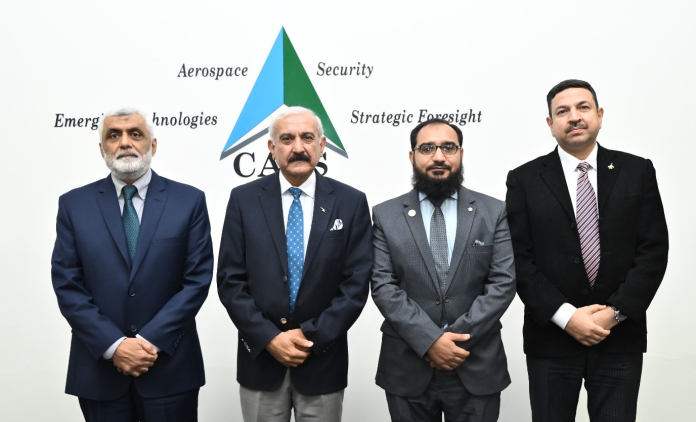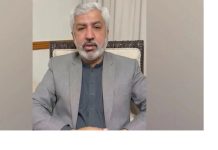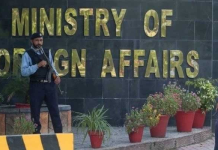ISLAMABAD, JULY 26 (DNA):The Centre for Aerospace & Security Studies (CASS), Islamabad, convened a roundtable discussion on ‘Unmanned Military Revolution: Contemporary Drone Warfare and Anti-Drone Systems,’ as part of CASS Tech Talk series on 23th July 2025. The discussion covered offensive drone capabilities, emerging technologies such as swarm drones and loyal wingmen, and critical anti-drone defence strategies. The event was attended by members of academia, and intellectuals. CASS is an independent think tank that continues to arrange academic events for academia and practitioners interested in National Security in its wider context.
The moderator of the roundtable, Air Commodore Raza Haider (Retd), Director at CASS, introduced the Tech Talk as a platform to examine evolving drone technologies and their impact on recent conflicts. He reiterated CASS’s commitment to shaping strategic discourse on drone warfare through timely and relevant analysis. Setting the stage for discussion, he highlighted three case studies: the Pakistan-India conflict involving Harop drones, Ukraine’s Operation Spiderweb that inflicted USD 8 billion in damage to Russian bombers, and Israel’s Operation Rising Lion targeting Iran’s air defences.
Air Marshal Farooq Habib (Retd), former Senior Director at CASS Islamabad, focused on the strategic transformation driven by drone warfare. His address was structured around three key policy-relevant dimensions. First, he examined the implications of drone warfare for deterrence and escalation and its linkage to traditional deterrence frameworks. Second, he reviewed the trajectory of drone development and the corresponding military adaptations. Third, he highlighted the democratizing effect of drone technology, enabling the mass proliferation of unmannned technology. Citing Ukraine’s exponential drone production, from 5,000 units in 2022 to 2.4 million in 2024, he underscored the strategic implications for regional conflicts. He projected that hybrid warfare, complemented by sporadic conventional engagements, will dominate South Asia’s future conflict landscape.
Dr. Sohail Malik, Chairman of the Department of Mechanical & Manufacturing Engineering at Pak-Austria Fachhochschule IAST Haripur, provided a technical briefing on counter-drone systems, emphasizing the necessity of integrated frameworks across four operational domains: detection, tracking, identification, and neutralisation. He advocated for multi-sensor integration including radar, EO/IR, acoustic sensors, and RF scanning for anti-drone systems reliability. In discussing tracking and identification, he outlined the critical roles of AI/ML, sensor fusion, and GPS manipulation technologies in monitoring flight paths and intent analysis. Dr. Malik warned against reliance on singular technologies and called for policy measures to promote the development of an indigenous, innovation-driven ecosystem.
Thanking the speakers for their insightful presentations, Air Marshal Javaid Ahmed (Retd), President CASS, said in his concluding remarks that CASS is rigorously examining recent regional conflicts, particularly the Pakistan-India confrontation and the Iran-Israel-US tensions, to extract critical lessons in contemporary warfare. He also highlighted that the Pakistan-India conflict demonstrated Pakistan Air Force’s operational excellence and marked a turning point in the integrated use of unmanned systems and advanced technologies.
The roundtable was followed by an interactive question-and-answer session with experts from academia and researchers. It concluded with a consensus that Pakistan must take proactive steps to boost its indigenous market of drones and anti-drones systems to stay ahead of its adversaries and to protect its assets and territory from deadly aerial threats.
















